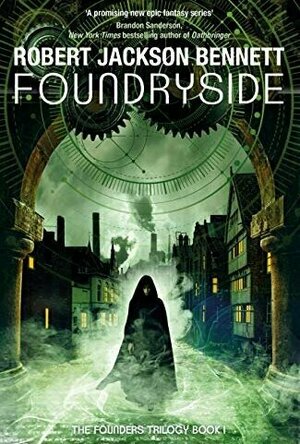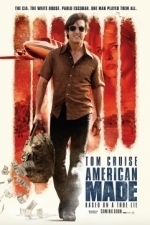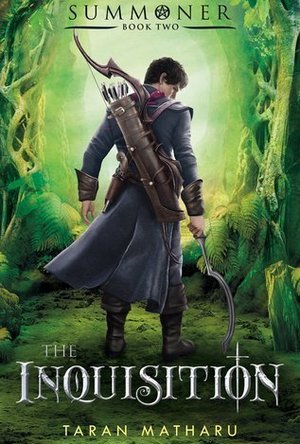
Ultimate Dinosaur Simulator
Games and Entertainment
App
Discover a long lost prehistoric world and rule over it as an all mighty Dinosaur! Travel back to a...
Ross (3284 KP) rated Foundryside in Books
Aug 31, 2020
Sancia is a key customer for some of this black market. She is a mercenary who will, for a fee, steal things. Not much of Sancia's past work is given, whether she is just a thief for hire, or has killed. She is a good strong, complicated character. Sancia has the ability to sense the thoughts of inanimate objects. For example, she can touch a wall and find out where the wall joins to other walls, whether there are gaps, whether someone is leaning on the other side, etc. This comes in handy when she successfully steals a box from a storage facility that contains a magical key that she can speak to.
There then follows a gripping plot to dethrone the merchant houses by seeking to stop them achieving more than just market share.
As with all the best fantasy worlds, the nature of things is revealed gradually over the course of the book. At times this verges on deus ex machina, but never quite goes over that line, things being mostly plausible given what we already know.
The dialogue of the book is where I have most of my issues with it. As with a number of recent books, the author is clearly an American and puts a number of Americanisms into the prose. While I am no language snob and can happily accept these in general, it is harder to do so in a fantasy book, especially one where other aspects of the language are clearly supposed to be more British English. The combination of a character saying "you all" or "most always" or "goddamn" and then using the word "arse" rather than "ass" just really ground my gears. It would have been much better to have been consistent and stick with "ass" and closer to the author's true voice.
Additionally, as with a number of fantasy books, new swear words are invented. These are partly explained and linked to the world, but it just comes across as a means of swearing without saying the actual "f" word. The word "scrumming" is far too twee a word to convey the same emotion as the word it is trying to replace and takes me right out of the book.
The pacing of the book was mostly fine, a few times it did seem to grind to a halt or there were long chapters of gradual exposition, but the action sequences, of which there were plenty, were thrilling and well told.
Overall, I did really enjoy this book, but the language used at times took me out of it and spoilt the mood a little. I can always tell how much I am enjoying a book by how quickly I read it and the number of comics I read simultaneously. My comic reading did go up a notch while reading this book.

Typhoons by Royal Blood
Album
After two UK #1 albums, 2 million album sales and an array of international acclaim, you might’ve...

Jurassic World™: The Game
Games and Entertainment
App
Return to Isla Nublar with the creators of the smash hit Jurassic Park™ Builder for your next...

Ultimate Shark Simulator
Games and Entertainment
App
Dive into the deep blue sea and rule over the ocean as a real Shark! For the first time ever, choose...

Ultimate Fox Simulator
Games and Entertainment
App
Dash into a brand new adventure as a wild Fox! For the first time ever, choose from THREE PLAYABLE...

Red Bull TV
Sports and Entertainment
App
Welcome to the world of Red Bull TV, giving you front row access to live events, the very best in...
Bob Mann (459 KP) rated American Made (2017) in Movies
Sep 29, 2021
A quick stop in Nicaragua to pick up some paperwork from Noriega.
“Based on a True Story” this is a biopic on the life of Barry Seal, a hot shot ‘maverick’ (pun intended) TWA pilot who gets drawn into a bizarre but highly lucrative spiral of gun- and drug-running to and from Central America at the behest of a CIA operative Monty Schafer (Domhnall Gleeson). All this is completely mystifying to Barry’s wife Lucy (Sarah Wright) who is, at least not initially, allowed to be ‘in’ on the covert activities.
Flying high over Latin America.
The film is a roller-coaster ride of unbelievable action from beginning to end. In the same manner as you might have thought “that SURELY can’t be true” when watching Spielberg’s “Catch Me If You Can”, this thought constantly flits through your mind. At each turn Seal can’t believe his luck, and Cruise brilliantly portrays the wide-eyed astonishment required. This is a role made for him.
Also delivering his best performance in years is Domhnall Gleeson (“Ex Machina“, “Star Wars: The Force Awakens“) as the CIA man with the (whacky) plan. Large chunks of the film are powered by his manic grin.
Domhnall Gleeson as the CIA man with a sense of Contra-rhythm.
As an actress, Sarah Wright is new to me but as well as being just stunningly photogenic she works with Cruise really well (despite being 20 years his junior – not wanting to be ageist, but this is the second Cruise film in a row I’ve pointed that out!)). Wright also gets my honourary award for the best airplane sex scene this decade!
“Time to pack honey”. Seal (Cruise) delivering a midnight surprise to wife Lucy (Sarah Wright) – and not in a good way.
Written by Gary Spinelli (this being only his second feature) the script is full of wit and panache and – while almost certainly (judging from wiki) stretches the truth as far as Seal’s cash-storage facilities – never completely over-eggs the pudding.
Doug Liman (“Jason Bourne“, “Edge of Tomorrow“) directs brilliantly, giving space among the action for enough character development to make you invest in what happens to the players. The 80’s setting is lovingly crafted with a garish colour-palette with well-chosen documentary video inserts of Carter, Reagan, Oliver Stone, George Bush and others. It also takes really chutzpah to direct a film that (unless I missed it) had neither a title nor any credits until the end.
The real Barry Seal.
The only vaguely negative view I had about this film is that it quietly glosses over the huge pain, death and suffering that the smuggled drugs will be causing to thousands of Americans under the covers. And this mildly guilty thought lingers with you after the lights come up to slightly – just slightly – take the edge off the fun.
Stylish, thrilling, moving and enormously funny in places, this is action cinema at its best. A must see film.
Lee (2222 KP) rated Okja (2017) in Movies
Jul 14, 2017
And Okja certainly is a bit different. We’re first introduced to CEO of Mirando Corporation, Lucy Mirando (Tilda Swinton) who has ‘bred’ superpigs, in an effort to help with world hunger. 26 of these superpigs are being sent to farmers at various locations around the world and in 10 years time a competition is planned to determine who has raised the largest superpig. Lucy is clearly a bit strange (the perfect role for Tilda Swinton), and her company spokesperson, TV zoologist Johnny Wilcox (Jake Gyllenhaal) is even stranger. They’re determined to put a friendly, happy gloss over the fact that these animals have been genetically modified for slaughter and profit. So, time for us to get to know, and fall in love with one of them…
It’s now 10 years later and we’re with Mija, a young girl living in the mountains of Korea with her grandfather and Okja, the large hippo-like superpig who has become her close friend. They spend their time together out in the forest, with Okja helping to catch fish for dinner, and proving to be a faithful companion for Mija. And when disaster strikes, Okja even demonstrates the intelligence required to work out how to save Mija’s life. Okja is beautifully rendered in CGI, interacting perfectly with the surroundings and actors and is thoroughly convincing. It’s an enchanting and beautiful half hour or so – but we know it’s not going to last.
A small team from the Miranda Corporation arrives, along with Johnny Wilcox, who is just hugely annoying. They’re here to check up on how Okja is doing and, unbeknown to Mija, take her back to New York as the winner of the superpig contest. While Mija is in the forest with her grandfather she discovers what they’re planning and heads off to rescue Okja. What follows is an entertaining and thrilling chase to get Okja before she heads onto a plane. Mija is fearless and determined, a strong young heroine and probably the best thing about this movie. Along the way she is joined by the Animal Liberation Front, a young team that includes Steven Yeun, Paul Dano and Lily Collins. They know where Okja is headed and what her fate will be and they plan to stop it, with the help of Mija.
Much of Okja plays as though it should be a family movie and I wish that’s how they’d made it. With a large, friendly creature companion that needs to be rescued from the bad guys, much of this reminded me of the 2016 live action remake of Pete’s Dragon, which I enjoyed a lot. However, the final hour or so turns distinctly dark as we venture into the slaughterhouse and that, along with regular use of bad language, has given this movie a 15 certificate. It’s a strange variation of styles that just didn’t sit right with me overall. As mentioned before, Gyllenhaals character is seriously annoying and would have been much better suited as the wacky comic relief if this were a family movie. Tilda Swinton soon becomes boring too and it’s left to Mija and Okja to save the movie from becoming a total disaster.
Entertaining and enjoyable at times, but the wild variation of styles and characters just made the latter half of the movie drag.
Kaysee Hood (83 KP) rated The Inquisition (Summoner, Book 2) in Books
May 1, 2018
Despite the fact Fletcher was in imprisonment for a year he is game to accept a new mission that will aid Hominum in the war with the Orcs. He’s even willing to accept the challenge that comes with it to prove Elves and Dwarfs can work together in the hopes it will fix the strain on the Dwarven and Elven ties with Humans due to events that took place while he is in the hole. Results he does not doubt the Triumvirate had their hands in. All Fletcher and his friends have to do is go into Orc lands with three other teams to put an end to a Goblin breed.
It can never be easy for Fletcher.
Now, that’s all I really want to cover as important points in [i]The Inquisition[/i] because it should pull you in if my next words do not. To circle back I enjoyed the second book far more than [i]The Novice[/i] yet found a new appreciation for the first book as I realize now all the set up there is the reason the second summoner book is successful and was able to focus on the race issue a bit more
To circle back, my enjoyment of the second summoner book is due to the writing by Matharu because of how he set up [i]The Novice[/i] and there is more appreciation to be had for the first book of the series because it is after the second I realized how much had been done for [i]The Inquisition[/i] to be successful. It is within the first summoner book we’re introduced to key characters, plots (minor and major), lives of the characters, and the issues which will drive Fletcher in the second. If anything, [i]The Novice[/i] was an thick introduction to the events to come in [i]The Inquisition[/i]. So I would say be mindful if you’re thinking to begin the series of what occurs and how it will relate later.
However I want to say the character growth is still alive, for better or worse. We’re even given new characters and demons to grow fond of, or hate. Somehow 350+ pages were not enough and yet were perfect to convey where we needed to go then set up the points for the third book. And I have to say there are some twists in here I did not catch, which is nice for someone who had read so much and can predict so much to come. Even though there is some betrayal to me it was worth it as due to Fletcher’s nature we’re able to gain perspective from another race no one has probably given much thought to.
So, if you have yet to get into the Summoner Books then I suggest you go if you’re for fantasy and magic. If you’ve yet to pick up [i]The Inquisition[/i] then I have to say I have no clue what you are doing because I’m peeved at myself for not getting to it sooner. Honestly, it’s a good series to get lost in and yet think about real world issues we have today even if they’re painted a little bit different.



